Need the best tools for keyword research to improve your website's visibility? Here's a guide to the top 10 SEO tools.
They provide user-friendly interfaces, large databases, and accurate data for effective research. Suitable for beginners and experts, and for any budget, you'll find the right tool.
Here's a brief look at what each offers:
- Semrush: Great for experts and beginners, offers a vast database and accurate data.
- Ahrefs Keywords Explorer: Known for its massive database and user-friendly interface.
- Google Keyword Planner: A reliable, free tool directly from Google.
- KWFinder: Excellent for finding local keywords and offers frequent database updates.
- Moz Keyword Explorer: Provides unique data points to help choose the best keywords.
- KeywordTool.io: Generates over 750 keyword ideas per search.
- Google Trends: Ideal for spotting keyword trends.
- AnswerThePublic: Offers unique keyword suggestions based on questions.
- Soovle: A simple, free tool with a wide range of keyword ideas.
- QuestionDB: Focuses on keyword questions, great for content ideas.
Quick Comparison
| Tool | Database Size | Unique Features | Pricing |
|---|---|---|---|
| Semrush | Over 200 million | Competitor keyword analysis, SEO writing assistant | Starts at $119.95/month |
| Ahrefs Keywords Explorer | Over 207 million | Content gap analysis, historical data | Starts at $83/month |
| Google Keyword Planner | Huge (Google's data) | Google Ads integration | Free |
| KWFinder | Over 207 million | Local keyword search, ranking alerts | Starts at $29/month |
| Moz Keyword Explorer | Over 5 billion | Click probability, competitor keyword gap analysis | Starts at $99/month |
| KeywordTool.io | Over 750 ideas/search | Keyword data for social media | Starts at $69/month |
| Google Trends | Large (Google's data) | Trend analysis | Free |
| AnswerThePublic | Based on Google Autocomplete | Question-based keywords | Free |
| Soovle | Over 1.2 million | Simple interface, saves searches | Free |
| QuestionDB | Over 207 million questions | Filters by location/language | Starts at $7/month |
Choosing the right keyword research tool can significantly impact your SEO strategy, helping you attract more visitors to your site. Consider your specific needs, budget, and the unique features of each tool to make the best choice for your website.
Comparison Criteria
When we look at different tools for finding the best keywords, there are five main things to think about:
User Interface
How a tool looks and works can really make or break your experience. You want something that's easy to use, where you can quickly find what you need without getting lost. Here's what to consider:
- Can you easily search for keywords and see their details?
- Is everything laid out in a way that makes sense, or is it hard to find stuff?
- Does it look good and feel modern?
Database Size
This is all about how many keywords the tool knows about. More keywords mean you get more ideas and data to work with. Here are the important bits:
- How many keywords does it have?
- How often do they update it to include new trends?
- Can it help you with searches in different languages?
Accuracy of Data
Having lots of data is great, but it needs to be right. You want to make sure the tool gives you info that matches up with what's really happening in searches. Think about:
- Do the search volumes and other numbers look accurate?
- Does the tool check its data against other sources to make sure it's right?
- Are the keyword suggestions actually helpful?
Unique Features
Some tools have special extras that can give you an edge. These might help you learn more about your competitors, find keywords for digital marketing, or see how people search in different places. Look for:
- Tools that let you compare your site to others
- Options to narrow down keywords by place, language, or device
- Ways to see data in charts or graphs
- Being able to work with other SEO tools
Pricing
Most tools have free versions and ones you pay for:
- Free versions are good for basic keyword research but might limit what you can do
- Paid versions give you more features, data, and ways to connect with other tools
- Try out paid versions with free trials before you decide to buy
Overview of Keyword Research Tools
1. Semrush
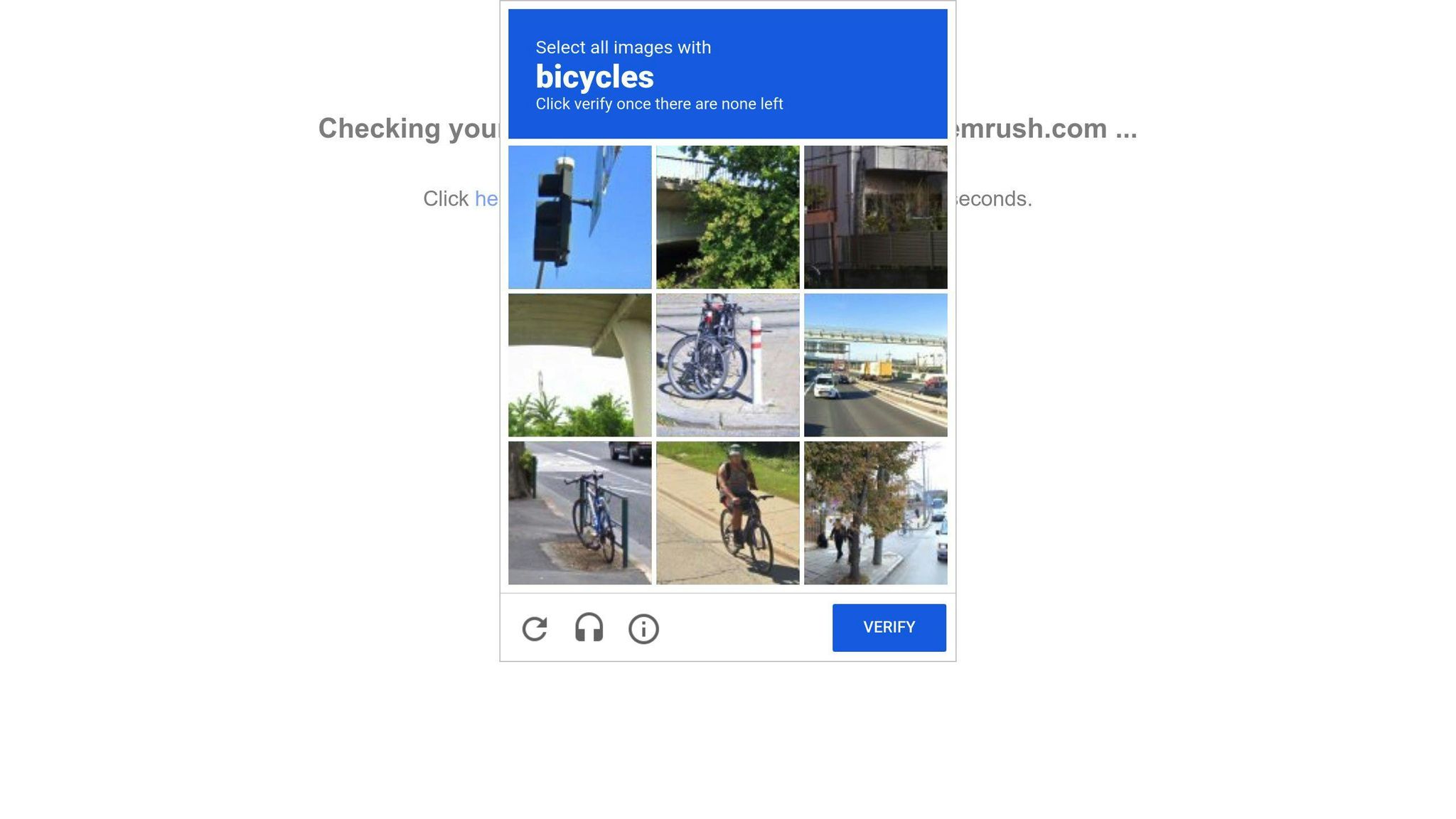
User Interface
Semrush is easy to use and looks nice. You can quickly find what you're looking for, like keyword ideas or how you stack up against competitors. It's designed to be simple for beginners but also has everything experts need.
Database Size
Semrush knows about over 200 million keywords. That's a lot! It keeps track of how often people search for these words and updates its list to include new trends. It can also give you keyword ideas in different languages.
Accuracy of Data
Semrush makes sure its information matches up with other reliable sources, like the Google Keyword Planner. They check their facts to give you numbers you can trust, like how many people are searching for a keyword.
Unique Features
Some cool things about Semrush include:
- It can show you what keywords your competitors are using that you aren't.
- The Keyword Magic Tool helps you come up with new keyword ideas.
- It works with Google Analytics and Google Search Console, so you can see which keywords are bringing people to your site.
- It has a tool that checks your writing and gives tips to make it better for SEO.
Semrush also lets you connect with other tools to make your work easier.
Pricing
Semrush has a free version, but it doesn't do much. If you want more features, plans start at $119.95 a month. They offer a 7-day free trial, so you can try it out before you decide to buy.
2. Ahrefs Keywords Explorer
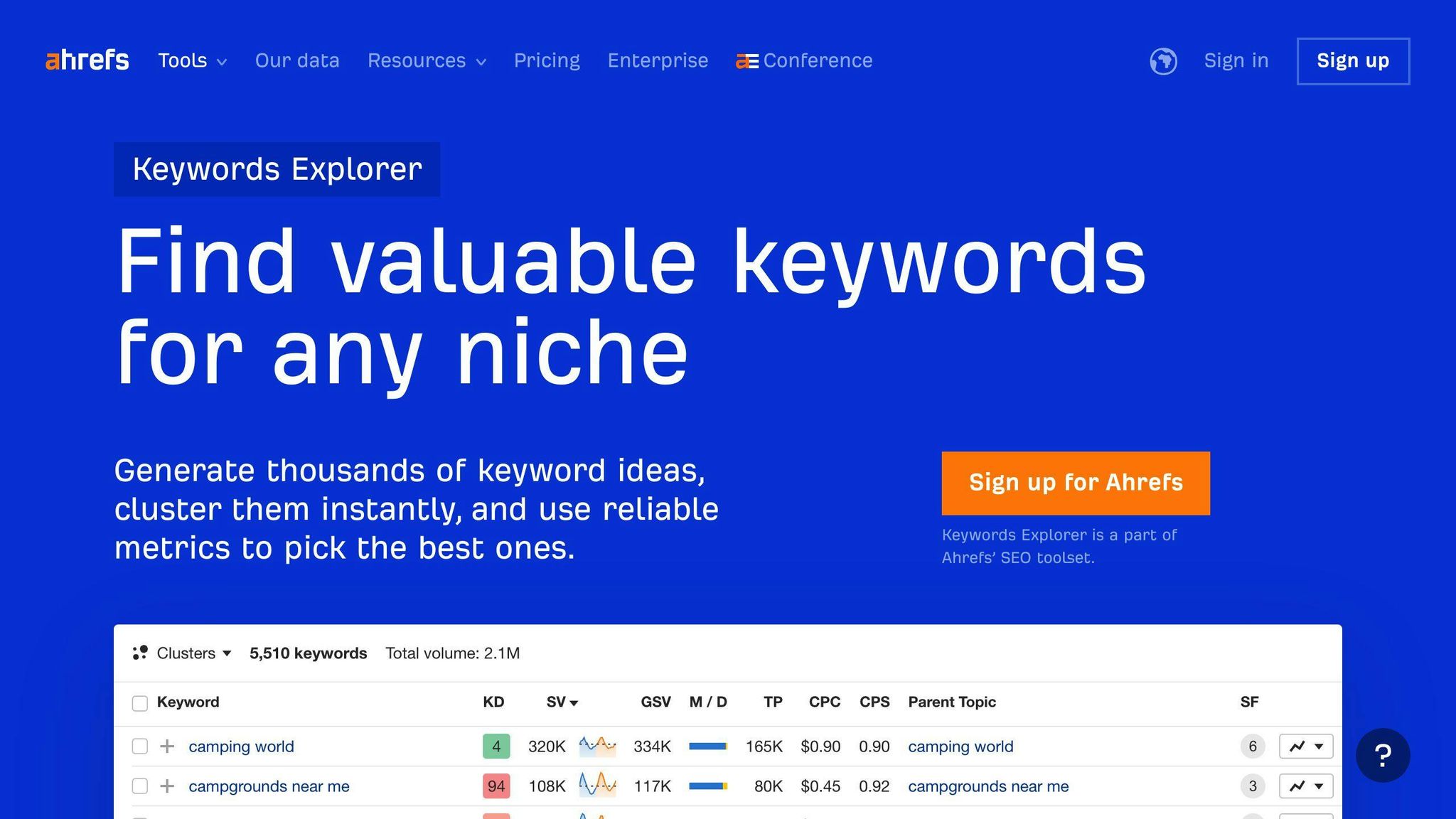
User Interface
Ahrefs Keywords Explorer is pretty straightforward to use. It's got a clean look and it's easy to find your way around. You can quickly look up keywords and see suggestions that are related. The way it shows info like how many people search for a word, how much ads cost, and how tough it is to rank for that word is clear and simple. It also has charts and graphs if you like seeing things visually. It's made so both beginners and experts can get a lot out of it.
Database Size
Ahrefs looks at over 13 billion web pages to gather a huge list of over 207 million keywords from 171 countries. They update this list a few times every day with the newest search trends. It also works for searches in different languages and places, which is great if you're looking globally.
Accuracy of Data
Ahrefs makes sure its info matches up with other big sources to keep things accurate. They use smart tech to give you really good keyword ideas that fit what you started with. You can also look at how keywords have done over time, thanks to their historical data. With a big database and careful checking, you can trust the numbers they give you.
Unique Features
- It lets you see how your keywords stack up against your competitors.
- Finds keywords you haven't thought of yet with content gap analysis.
- Uses real search data to help you pick better keywords.
- Sends you emails if your competitors' rankings change.
- Works together with Ahrefs' other tools, like checking out websites and finding content ideas.
Pricing
Ahrefs lets you try it for 7 days for $7 for their Lite and Standard plans. The price goes from $83 a month (Lite) to $999 a month (Agency) if you pay for a year at a time. The more you pay, the more features, data, and ways to connect you get. The 7-day trial is a nice way to see if you like it before you buy.
3. Google Keyword Planner
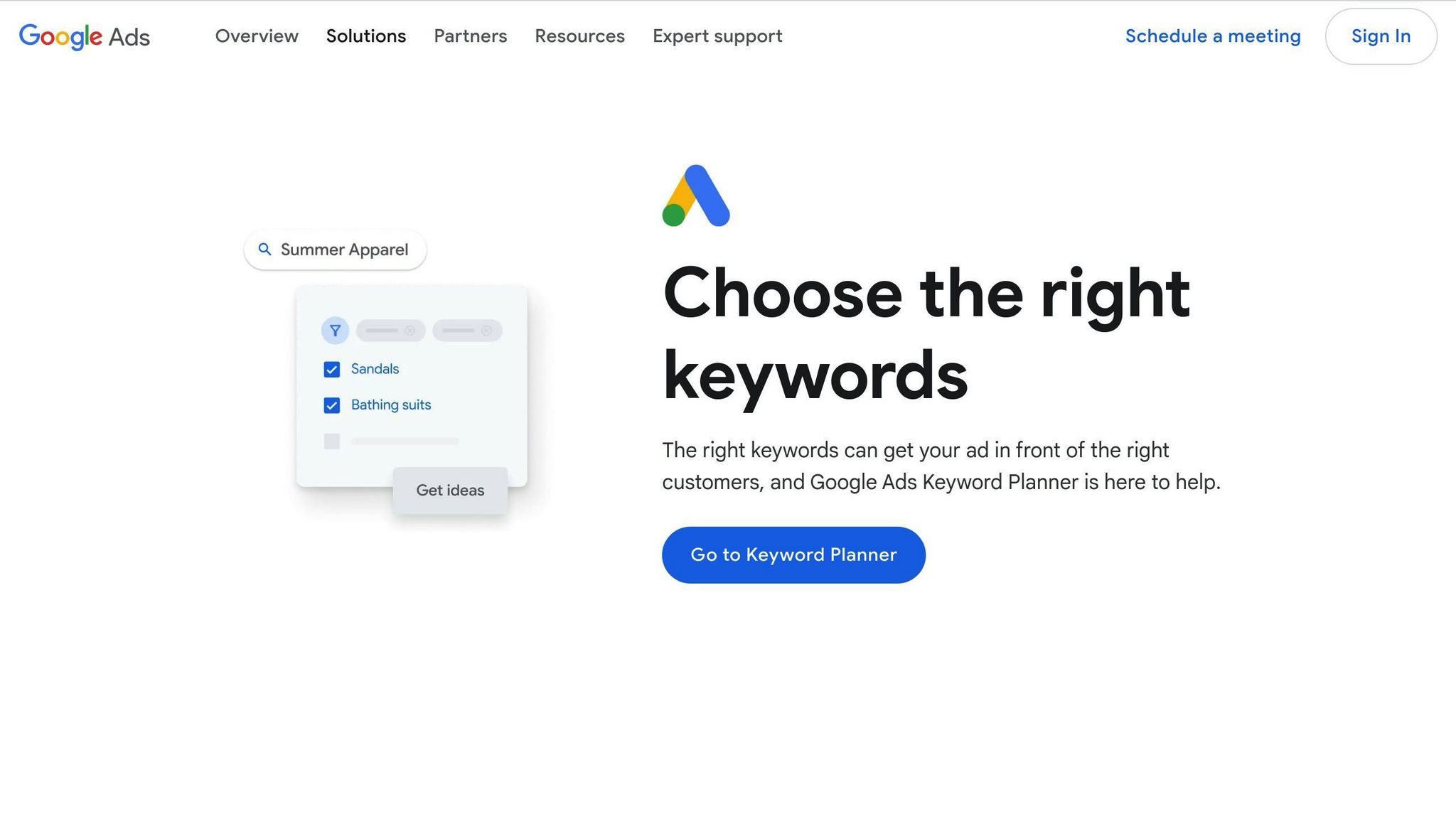
User Interface
Google Keyword Planner is straightforward and easy for anyone to use. Here are a few things you'll find:
- It's simple to search for keywords and see suggestions.
- It shows how many people search for those keywords every month, how tough the competition is, and how much you might pay for ads.
- You can sort and pick keywords based on where people are and what language they use.
It focuses on giving you the keyword info you need in a way that's easy to understand.
Database Size
Google Keyword Planner uses Google's own search data, so it has tons of keyword ideas and knows how often people search for them.
They keep adding new keywords to stay up-to-date with what people are looking for.
Accuracy of Data
The info comes right from Google, which means it's very accurate. It shows what people are actually searching for.
Google keeps improving how it understands what we're looking for, which makes this tool's data even better over time.
Unique Features
- It works well with Google Ads, showing if you're already using some keywords in your ads.
- It can predict how many people might visit your site in the future.
- You can find the right keywords for different places and languages.
- You can check a bunch of keywords you already have all at once.
Pricing
Google Keyword Planner is free. You just need a Google Ads account to use it.
If you're already using Google Ads, this tool is a great extra because it makes it easy to use your keyword findings in your ads.
4. KWFinder
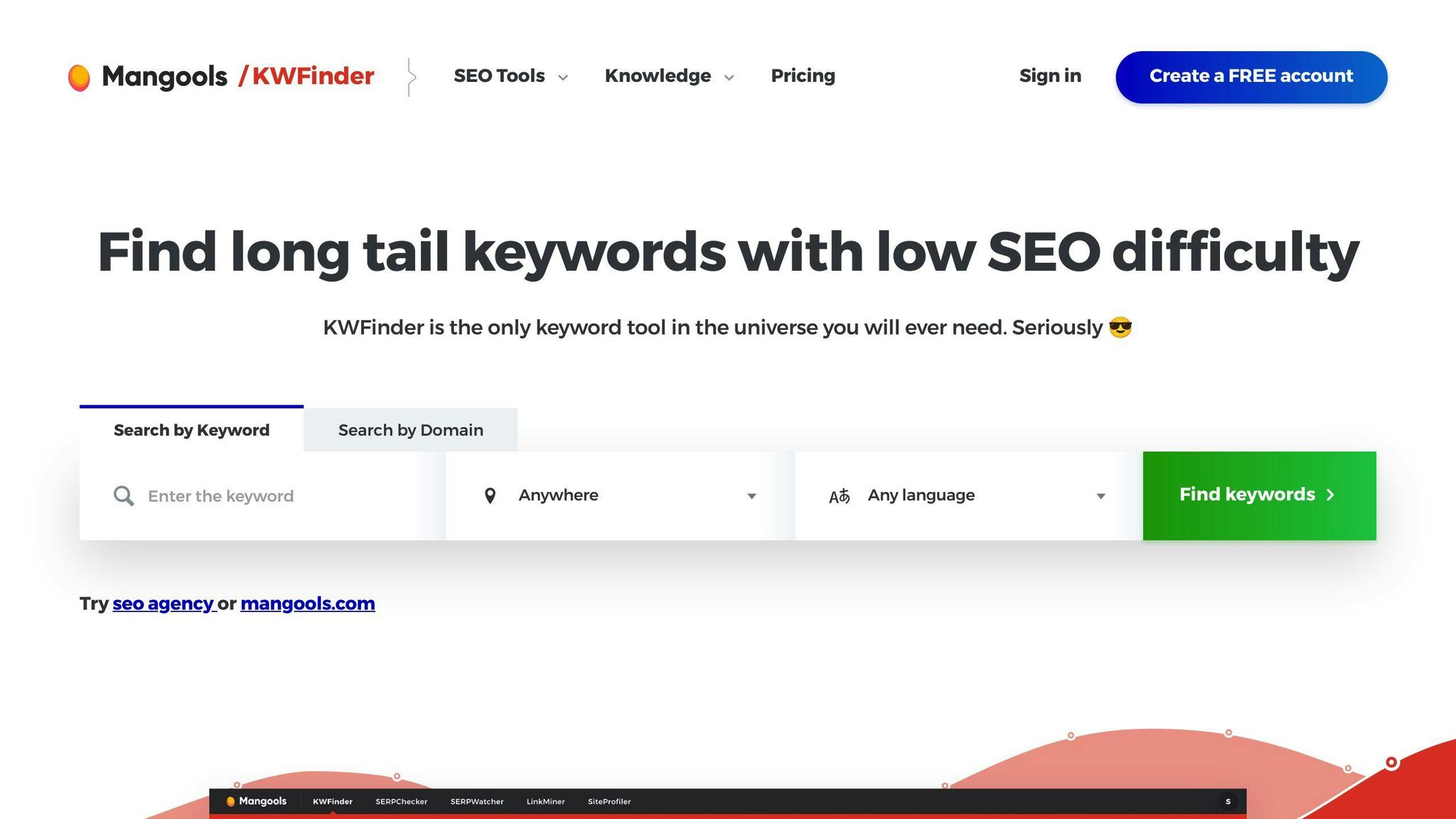
User Interface
KWFinder is super easy to use. It lets you look up keywords quickly and shows you more specific options, or 'long-tail keywords,' along with important numbers like how many people are searching for them, cost per click (CPC), and how tough the competition is. The design is straightforward, so anyone can use it without getting confused.
Database Size
KWFinder uses a huge list of over 207 million keywords. They make sure to keep this list fresh by updating it often with new search trends from all over the world.
Accuracy of Data
KWFinder makes sure its numbers match up with other big keyword tools. This means you can trust the search volumes, CPCs, and competition levels they show you when planning your content or ads.
Unique Features
- It gives you keyword ideas that are more detailed and specific.
- You can see how your keywords compare to your competitors'.
- It offers info on keywords for different places, which is great for local businesses.
- You'll get emails if your or your competitors' rankings change.
- It works together with other tools from Mangools for even more insights.
Pricing
KWFinder lets you do 5 searches a day for free. If you need more, paid plans start at $29 a month after you try it free for 10 days. The more expensive plans offer more features, let you do more searches, and give you access to more data.
5. Moz Keyword Explorer
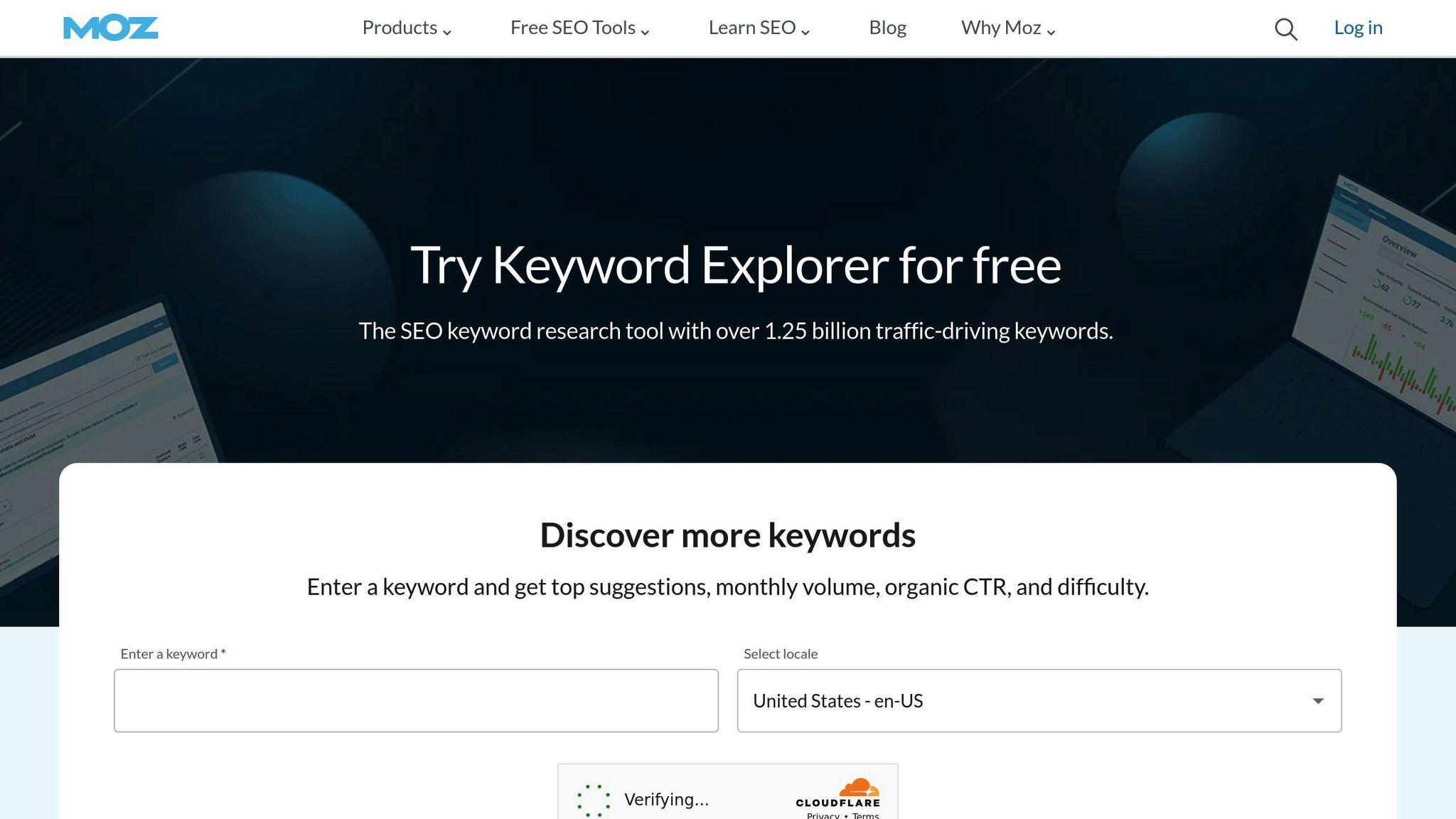
User Interface
Moz Keyword Explorer is really straightforward and easy for anyone to use. You can quickly look up keywords and see other related suggestions. It shows you important stuff like how many people are looking for that keyword, the chances of them clicking on it, and how hard it might be to rank for it, all in a way that’s easy to understand.
Database Size
Moz has a huge pile of over 5 billion keywords. This means it can give you lots of ideas for what words or phrases to use because it looks at a bunch of different places to find this info.
Accuracy of Data
Moz checks its keyword info with different sources and uses special calculations to make sure what they tell you is right on. They have some unique numbers, like how likely someone is to click on your keyword, that can help you pick the best ones.
Unique Features
- It has a special score to help you quickly see if a keyword is a good choice.
- Shows how likely people are to click on keywords.
- Helps you find keywords your competitors might not be using.
- Works well with Moz’s other SEO tools for a bigger picture look.
Pricing
- You can do 10 keyword searches a month for free.
- Paid plans start at $99 a month and let you search for more keywords and use more features.
- There’s a 30-day free trial for the paid plans so you can try it out first.
6. KeywordTool.io
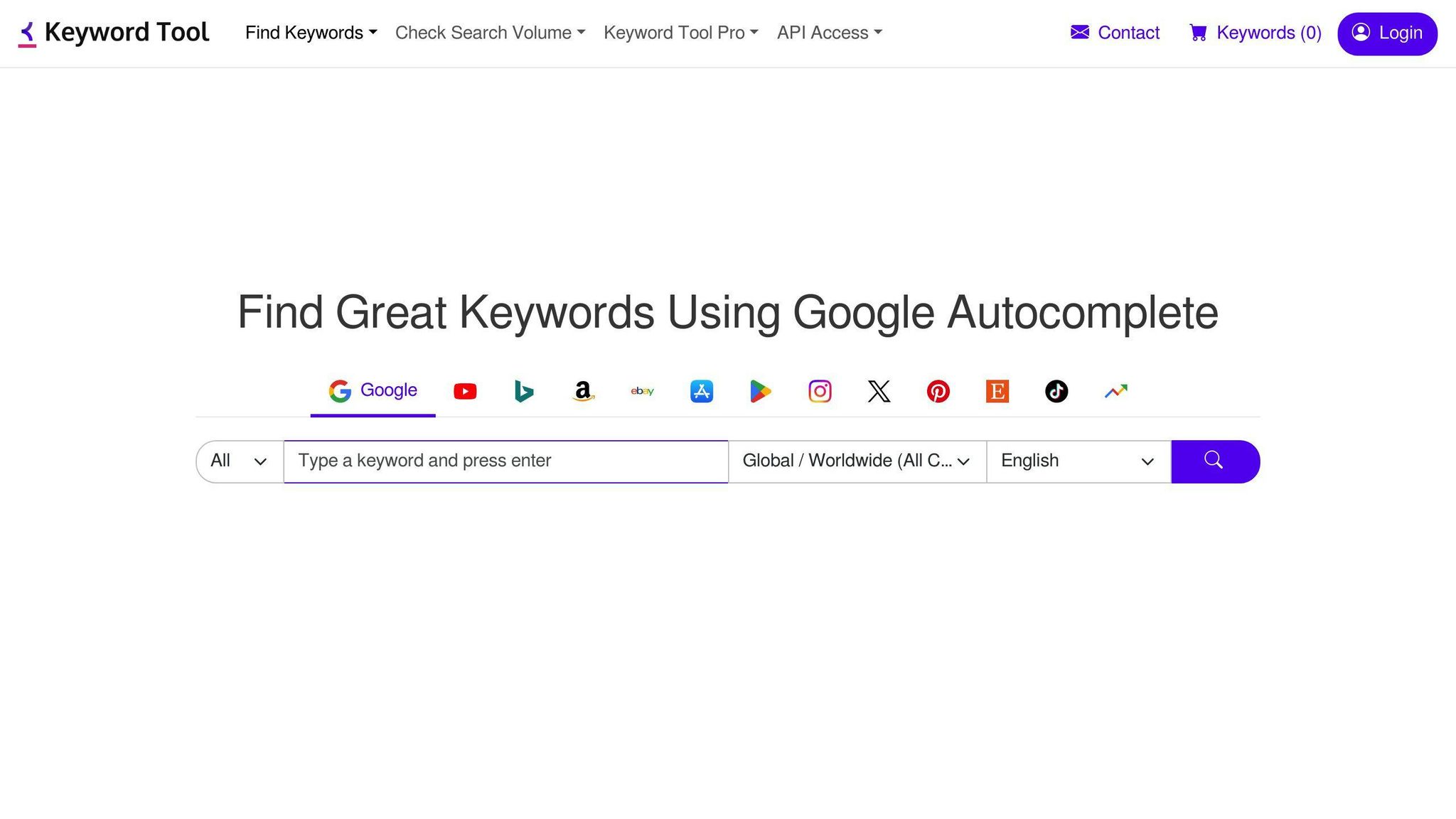
User Interface
KeywordTool.io is super easy to use. It's got a straightforward design that helps you quickly look up keywords and see different longer options. The results are clear, showing things like how many people are searching for these words, how much ads might cost, and how tough the competition is. Whether you're just starting out or you know a lot about this stuff, you'll find what you need fast.
Database Size
KeywordTool.io uses Google's suggestions to come up with a big list of more than 750 different keyword ideas for each main word you're interested in. It gets information from a bunch of search engines, giving you lots of options.
Accuracy of Data
The free version of KeywordTool.io doesn't show how many people are searching for the words or other details. But if you pay, you get access to more accurate info. They check their numbers with different places to make sure they're right.
Unique Features
- Comes up with longer keyword ideas from Google's suggestions
- Gives you keyword ideas for different search engines
- Lets you download the results
- Provides keyword data for Instagram and Twitter
Pricing
You can use KeywordTool.io for free to get over 750 keyword ideas for each word you're curious about. If you want more details like how many people are searching, how much ads cost, and how tough the competition is, plans start at $69 a month if you pay for a year. They also promise to give your money back within 30 days if you're not happy with the paid plan.
7. Google Trends
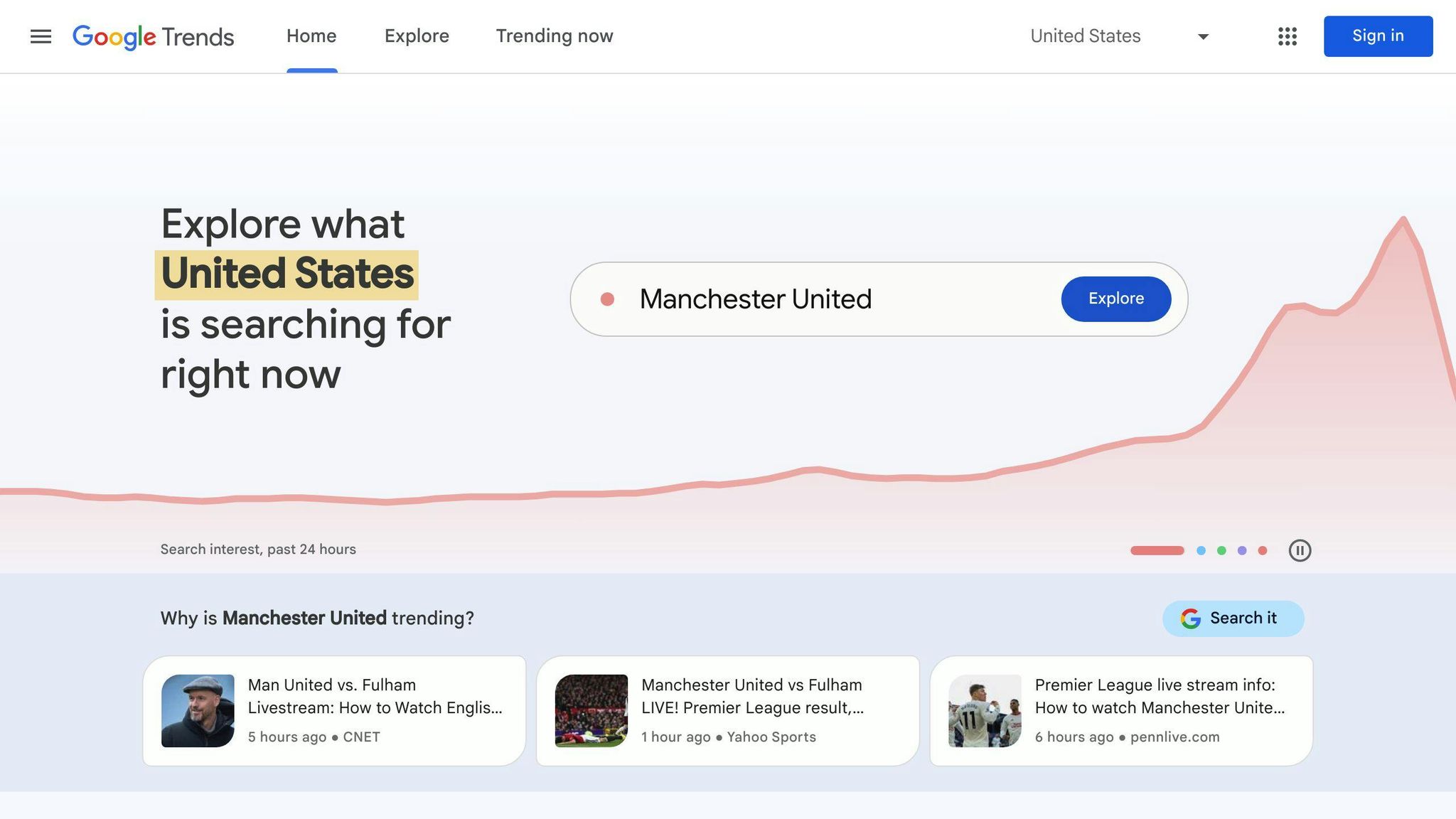
User Interface
Google Trends is really straightforward and easy to use. You can type in what you're curious about and see how it's been searched over time, shown in simple charts and graphs. It's set up in a way that anyone can use it, whether you're new to this or have been doing it for a while.
Database Size
Google Trends taps into Google's huge amount of search data to show you the popularity of keywords over the years. It's good for spotting what's getting more or less popular but doesn't tell you the exact number of searches.
Accuracy of Data
Since the data comes straight from Google, it's really reliable for seeing what people are interested in and how that changes over time.
Unique Features
- Puts search trends into easy-to-understand charts and graphs
- Lets you compare different keywords to see how they stack up
- You can narrow down the data by country and time period
- Points out related searches and topics that are getting attention
Pricing
Google Trends is totally free. All you need is a Google account. It's a handy tool for spotting trends and comparing keywords, but keep in mind it doesn't give you exact numbers for how many searches something gets.
8. AnswerThePublic
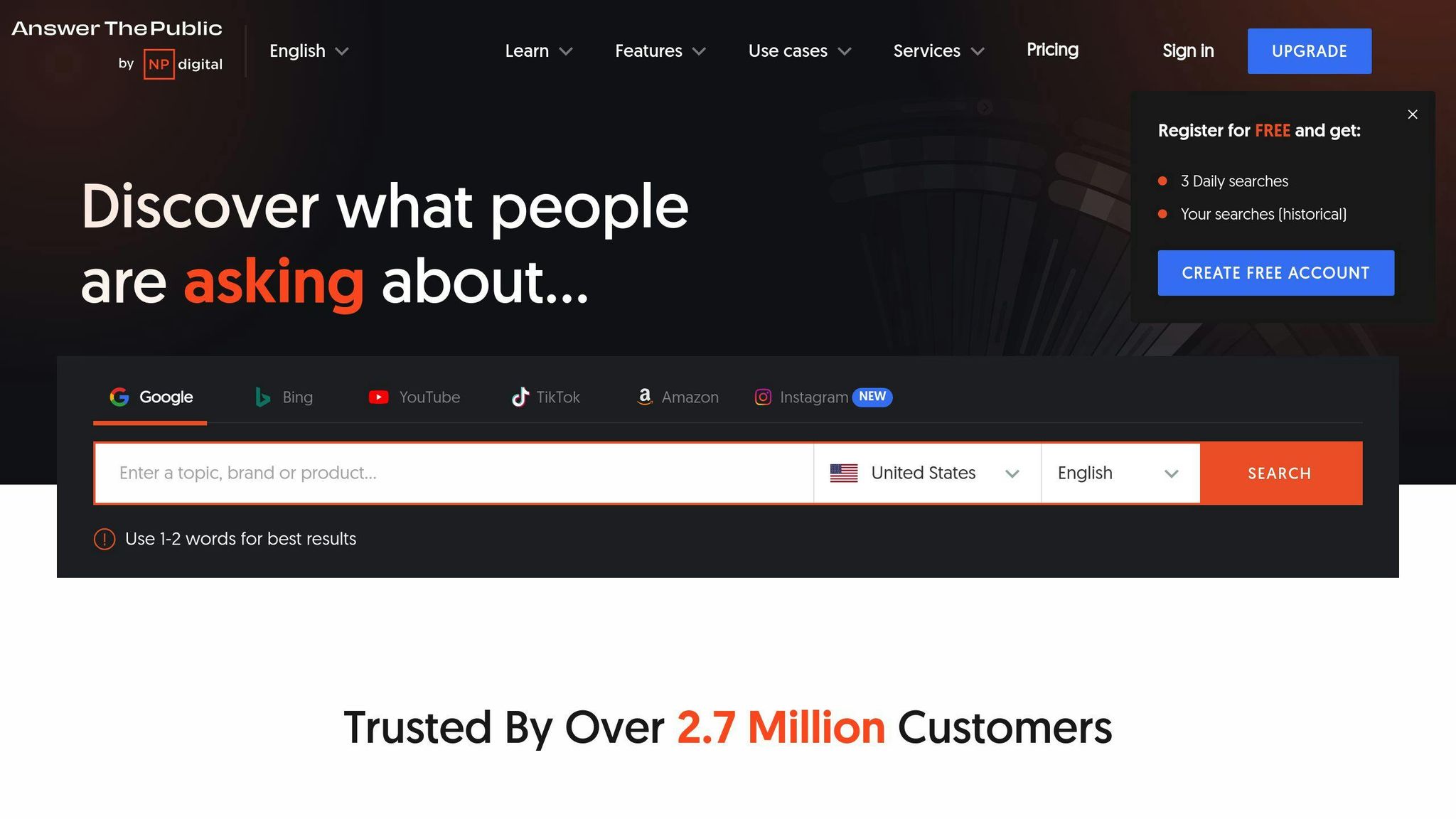
User Interface
AnswerThePublic is super straightforward to use. Just type in a word and you'll quickly see a bunch of related questions and phrases. It sorts everything into groups like Questions, Prepositions, and Comparisons, making it really easy to spot good ideas for long-tail keywords and what to write about.
Database Size
AnswerThePublic uses info from Google Autocomplete to come up with lots of long-tail keyword suggestions. While it might not have as many keywords as some of the tools you pay for, it still offers plenty of ideas to work with.
Accuracy of Data
The keywords you get are straight from Google Autocomplete, so they're a good reflection of what people are actually searching for. But, it doesn't tell you how many people are searching for these terms.
Unique Features
- Finds keyword ideas based on questions, prepositions, and comparisons linked to your main keyword
- Lets you easily save your results in different formats like spreadsheets or PDFs
- Works great alongside other keyword research tools by offering unique suggestion types
Pricing
AnswerThePublic is free and doesn't have a usage limit. It's simple to use and gives you unique keyword ideas, but it's missing some of the features that you get with tools you have to pay for.
9. Soovle
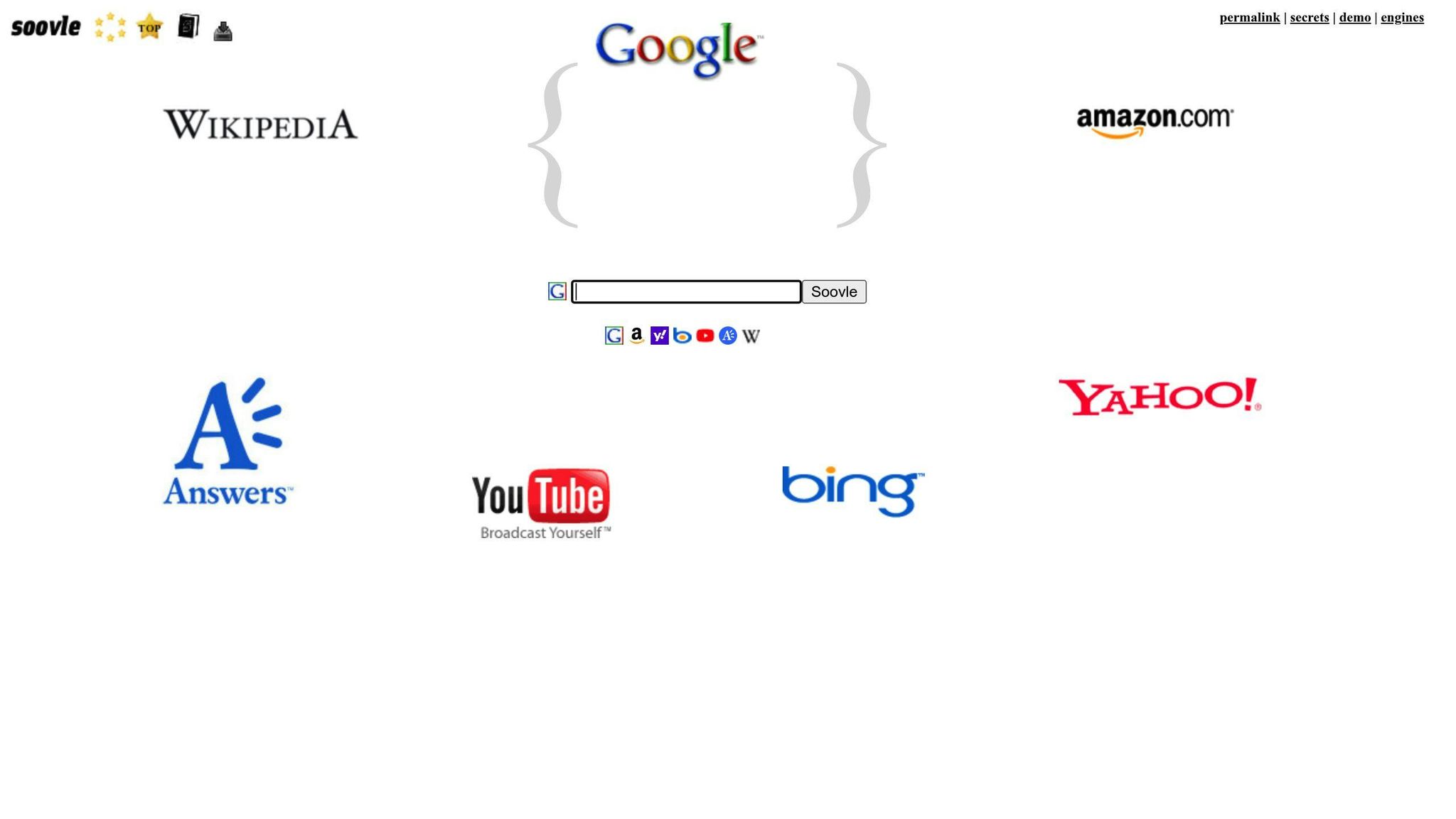
User Interface
Soovle is straightforward and easy to navigate. You can quickly type in what you're curious about and see a bunch of suggestions pop up. The layout is simple, making it easy for both newbies and those who know their way around keyword tools to use.
Database Size
Soovle gathers ideas from different places like Google and Bing, offering over 1.2 million suggestions. It might not have as many options as some of the pricier tools, but it still gives you plenty to think about.
Accuracy of Data
Soovle doesn't tell us where its data comes from, but the numbers it shows for things like how often people search for a word are generally trusted. Some users have mentioned that the search numbers might not always be spot on.
Unique Features
- Gives you a wide range of keyword ideas
- You can sort keywords by how popular they are or how tough the competition is
- Allows you to look at how keywords have done over the past year
- You can save lists of keywords to look at later
Pricing
Soovle is completely free. It's a basic tool that doesn't have some of the extra details you'd find in tools you have to pay for, like information on how keywords have changed over time or what your competitors are up to. But for a free option, it's quite handy for coming up with keyword ideas.
10. QuestionDB
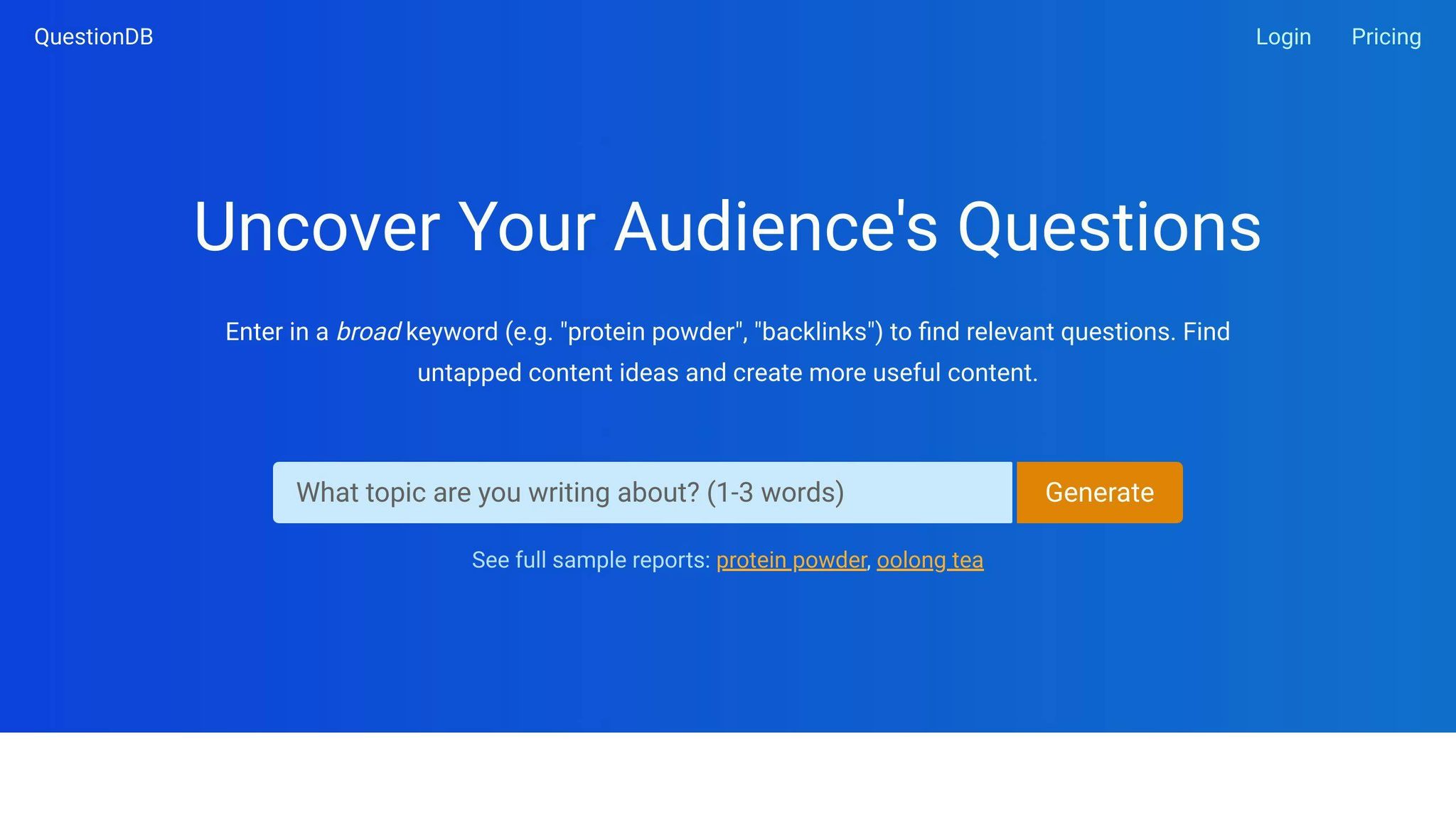
User Interface
QuestionDB is straightforward and easy to use. You can type in what you're curious about and see a list of questions people ask on Google related to your topic. The search results show you how many people are asking each question and how tough the competition might be. It also has some tools to help you focus on just what you're interested in, like sorting by place or language. It's simple enough for someone just starting out but also has good stuff for more experienced folks.
Database Size
QuestionDB gets its ideas from over 207 million questions people type into Google. It's not as huge as some other tools you might pay for, but it's all about questions, which can be really useful.
Accuracy of Data
The info about keywords comes straight from Google, so it's pretty spot-on about what people are actually looking up. But, the info on how hard it might be to beat the competition isn't as detailed as what you'd get from bigger SEO tools.
Unique Features
- Looks for keyword ideas from real questions people are asking
- You can pick to see suggestions based on where you are or what language you speak
- Shows how many people are looking up these keywords and how stiff the competition is
- Can work together with other tools like Semrush and Ahrefs
Pricing
QuestionDB lets you use it for free but with only a few searches. If you want more from it, plans start at $7 a month. They let you try the paid version for free for 7 days.
sbb-itb-b8bc310
Comparative Analysis
When we compare the top 10 tools for finding the best keywords, there are a few things that make some stand out more than others:
User Interface
The easiest tools to use are Semrush, Ahrefs, Google Keyword Planner, and KWFinder. They have clear layouts and make it simple to look up and understand keywords. They're great whether you're just starting or you know a lot about this stuff.
Moz, Soovle, and QuestionDB are also easy to use. AnswerThePublic is unique because it organizes information by types of questions.
Database Size
Semrush, Ahrefs, Google Keyword Planner, and KWFinder have the biggest collections of keywords, with over 200 million each. This means you get a lot of good suggestions for what words to use.
Other tools have smaller collections but are still helpful. They use things like Google Autocomplete to find keywords.
Accuracy Of Data
Semrush, Ahrefs, Google Keyword Planner, and Moz are the best at making sure their information is correct. They check their numbers against other big sources, so you know you're getting accurate info.
Some free tools might not give you all the details, like how many people are searching. QuestionDB doesn't have a lot of information on competition.
Unique Features
Semrush has cool extras like reports just for you, tips on what to write, and how to see what you're missing. Ahrefs has good old data, emails about changes, and works well with its other tools.
AnswerThePublic and QuestionDB are special because they find keywords from questions people ask. Google Trends is good for seeing what's popular over time.
Pricing
Google Keyword Planner is the best free tool with a lot to offer. Google Trends, AnswerThePublic, and Soovle are also free but might not have everything you need.
For paid options, Semrush and Ahrefs have the most to offer, with prices from $83-$999 a month. Moz, KWFinder, and KeywordTool are cheaper, starting at $29-$99 a month.
In short, Semrush, Ahrefs, and Google Keyword Planner are the top choices with big databases, right info, and lots of features. But if you're new to keyword research, the free tools are a good place to start before you think about paying.
Pros and Cons
| Tool | Pros | Cons |
|---|---|---|
| Semrush | - Has a huge list of over 200 million keywords - Gives you numbers you can trust- Easy for both beginners and experts to use - Helps you see what keywords your competitors are using - Works well with other tools for SEO |
- The free version is pretty limited - The paid version can be pricey |
| Ahrefs Keywords Explorer | - Massive database with over 207 million keywords - Keeps up with the latest search trends - User-friendly interface - Can find gaps in your content - Links up with Ahrefs' other tools |
- No free version available - Higher cost for more features |
| Google Keyword Planner | - Uses Google's own search data - Very reliable numbers - Simple layout makes it easy to use - Great for Google Ads optimization - Completely free |
- More focused on paid ads than organic search - Not as useful for wider SEO strategies |
| KWFinder | - Database includes over 207 million keywords - Updates regularly with new search trends - Interface is straightforward - Great for finding local and specific keywords - Sends alerts for ranking changes |
- Free version limits you to 5 searches a day - Paid plans still have search limits |
| Moz Keyword Explorer | - Database of over 5 billion keywords - Has a special score to show keyword quality - Provides data on how likely people are to click - Helps you find what your competitors are missing - Works with Moz's other tools |
- Only 10 free searches a month - Paid versions can get expensive for more searches and features |
| KeywordTool.io | - Gives over 750 keyword ideas from Google - Good for finding specific keyword variations - Allows you to download results - Offers keyword data for Instagram and Twitter |
- Free version doesn't show search volume or other details - Paid version still restricts the number of searches |
| Google Trends | - Runs on Google's extensive search data - Shows clear trends with charts - Allows you to compare keywords - Can filter by location and time - Free to use |
- Doesn't provide exact search numbers - Lacks the features of paid tools |
| AnswerThePublic | - Gets long-tail keywords from Google Suggest - Sorts keywords into helpful categories - Makes saving results easy - A good addition to other tools - Free without any limits |
- No data on how many people are searching - Depends only on Google Autocomplete |
| Soovle | - Offers over 1.2 million keyword suggestions - Simple layout - Lets you track search volume changes over time - Can save lists of keywords for later - Completely free |
- Search data accuracy might be off - Not as detailed as paid tools |
| QuestionDB | - Pulls from over 207 million keyword questions - Gets queries right from Google - Can filter by location/language - Shows search volume and competition |
- Free version is very limited - Competition data not as detailed as other tools |
Conclusion
Picking the right tool to help you find the best words to use on your website is really important to get more people to visit. After looking at 10 different tools, we found some that stand out.
The Best Tools Overall
- Semrush is great if you're okay with spending some money. It knows about over 200 million words and gives you info you can trust. Plus, it has cool features like showing you what words your competition uses.
- Ahrefs Keywords Explorer is also a top pick because it has a big list of words, keeps its info right, and works well with other tools from Ahrefs.
- Google Keyword Planner is the best free option. It gives you good info straight from Google.
Best Tools for Beginners
If you're just starting out, these tools are easy to use and understand:
- Google Keyword Planner
- Soovle
- AnswerThePublic
Best Value Tools
Looking for good tools that don't cost a lot? These are worth checking out:
- KWFinder
- KeywordTool.io
- Moz Keyword Explorer (free version)
Remember, it's better to focus on a few good words that you can really aim for, rather than just collecting a lot of words. Make sure the words you pick fit well with your website's goals.
With the right tools and a clear plan, you'll start seeing more people visit your website soon. If you have any questions, feel free to ask in the comments!
Related Questions
What is the most accurate keyword research tool?
When it comes to finding the most accurate keyword research tool, Semrush is often at the top of the list. Semrush checks its information with a bunch of trusted places and uses smart ways to make sure the details like how many people are looking for a word, how much ads cost, and how hard it is to rank for that word are right. It also lets you see how a keyword has done over time, giving you a good idea of its performance.
Ahrefs, Moz, and Google Keyword Planner are also good for getting reliable keyword data, but Semrush is usually seen as the best.
What is the most accurate keyword difficulty tool?
For figuring out how hard it will be to rank for a keyword, Semrush's tool is really accurate. It looks at things like how strong the websites are that already rank for that keyword, how many people are searching for it, and if there are any special features on the search results page. This gives you a solid idea of how tough the competition is.
What is the best free keyword research tool for SEO?
For a free SEO keyword research tool, GetKeywords is a great choice. Here's why:
- It gives you information on keywords for over 100,000 places, which is super helpful if you're focusing on local SEO.
- You can pick specific countries, provinces, or cities to get even more targeted data.
- Even though it's free, you still get access to important keyword information.
- It supports more than 45 languages.
So, while it might not have everything that paid tools offer, GetKeywords is still pretty powerful for a free option.
What is the tool for trending keywords?
Google Trends is the go-to tool for finding out what keywords are getting popular. It uses data from Google searches to show you how the interest in a keyword has changed over time. This can help you jump on trends and find hot topics.
Here are some of its features:
- It shows graphs of how a keyword's popularity has changed.
- You can find related keywords to research more ideas.
- There are filters for looking at specific places and times.
- You can compare different keywords to see how they stack up against each other.
So, if you want to stay ahead of what's trending, Google Trends is a useful tool to have.